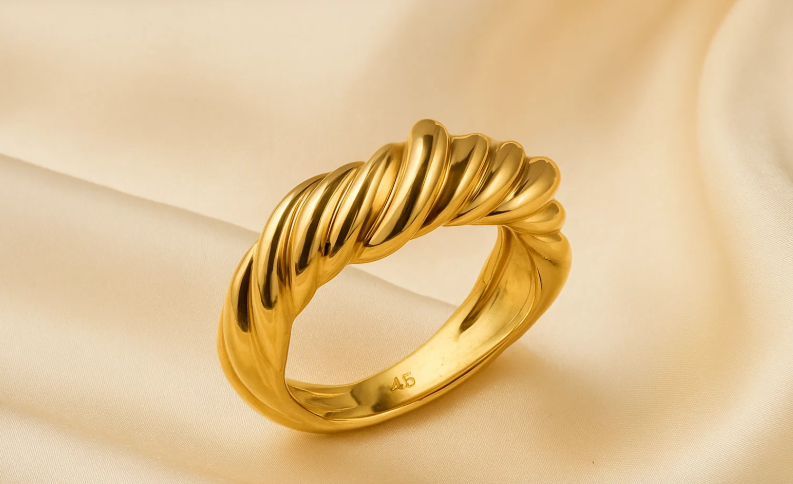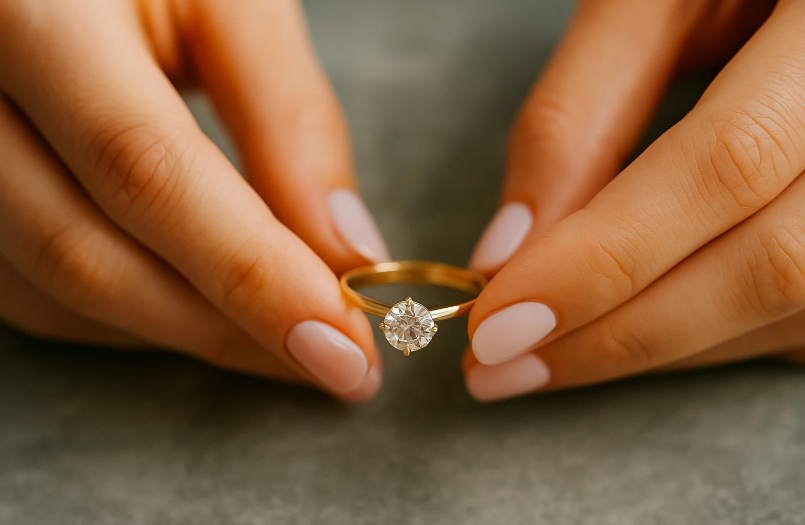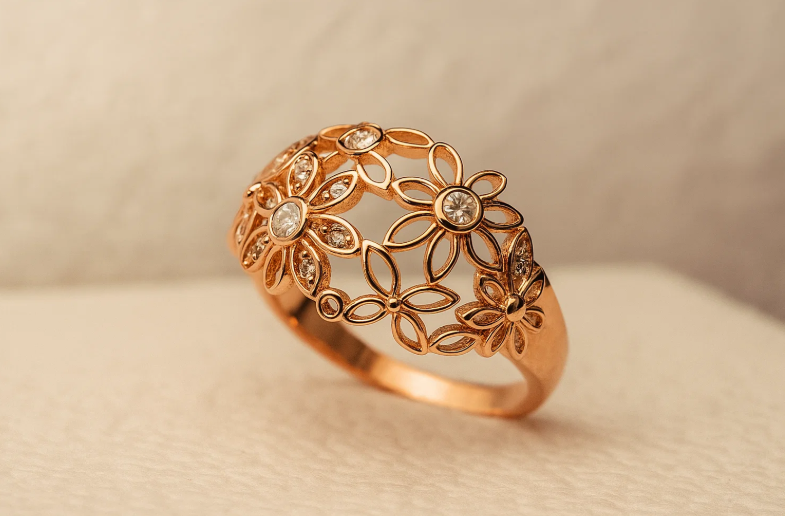Broken rings sitting at the bottom of your jewelry box may not seem valuable, but they could be worth more than you think. Even if a ring is bent, missing stones, or completely unwearable, the gold, silver, or platinum it contains still carries real value. The challenge most people face is figuring out where to sell and how to make sure they’re getting a fair payout.
This guide walks you through why broken rings are worth selling, how to figure out their value, and where you should take them to maximize your return.

Why Selling Broken Rings Makes Sense
Many people hold onto broken rings thinking they’re worthless, but in reality, they’re untapped assets. Here’s why selling is a smart move:
- Precious metals always carry value: Gold, silver, and platinum are traded globally. Even in damaged form, these metals retain resale and refining value.
- Space and decluttering: Old or broken rings take up space without being useful. Selling clears clutter while putting cash in your pocket.
- Financial opportunity: Whether it’s an emergency expense, extra spending money, or an investment opportunity, selling gold jewelry offers a quick cash option.
- Strong market prices: Gold has consistently stayed above $1,300 per ounce since 2018 and has even peaked over $2,000 per ounce in recent years. Selling when prices are high means broken jewelry can still yield a strong payout.
So, don’t let those rings gather dust; they may be more valuable than you expect.
Understanding the Value of Broken Rings
Before you rush to sell broken rings Okanagan, you need to know what you’ve got. Buyers will determine their offers based on these key factors:
1. Metal Purity
Most rings are made from alloys rather than pure metals. For gold, purity is measured in karats (e.g., 10k, 14k, 18k, or 24k). The higher the karat, the higher the percentage of pure gold, and therefore the higher the value.
- 24k = 99.9% pure gold
- 18k = 75% gold
- 14k = 58.5% gold
- 10k = 41.7% gold
Silver and platinum have their own purity marks too, usually stamped inside the band (e.g., “925” for sterling silver).
2. Weight
Weight plays a direct role in how much your ring is worth. Jewelers and refiners usually measure in grams or pennyweights (dwt). One troy ounce equals 20 pennyweights, and that conversion is standard in the industry.
For example, if 1.5 troy ounces of 18k gold are worth $1,350, then dividing by 30 pennyweights equals $45 per dwt.
3. Spot Price of Metals
The spot price is the real-time market price of gold, silver, or platinum. It changes daily, influenced by economic conditions, global demand, and currency values. The higher the spot price, the more you can expect to earn for your broken rings. Always check a trusted financial site for the current rate before selling.
4. Stones and Settings
If your ring has gemstones (like diamonds), their condition and quality may or may not add extra value. Many buyers only pay for the metal, while jewelers may offer more for intact stones.
Where Can You Sell Broken Rings for Good Money?
This is the part that matters most: finding the right place to sell broken rings in Okanagan. Different options will pay different amounts, and your choice could mean the difference between walking away with pennies or a fair payout.
Pawn Shops
Pawn shops are convenient for quick cash. You can walk in with your broken ring and walk out with money in hand.
Upside: Fast and easy, no shipping or waiting.
Downside: Pawn shops often undervalue gold and silver. Their business model requires them to buy low and sell high, so you’ll almost always get less than the true market value.
In short, pawn shops are good for emergencies, but not if you want the best price.
Jewelry Stores
Local jewelers may buy broken rings, especially if they can resell or melt down the gold.
Upside: Safer than pawn shops, and jewelers often have a better understanding of precious metals.
Downside: Offers may still be below the spot value since they also need a profit margin.
This option works if you want to stay local and trust your jeweler.
Online Marketplaces

Websites like eBay, Craigslist, or Facebook Marketplace allow you to sell directly to buyers.
Upside: Potential to set your own price and attract collectors or buyers looking for deals.
Downside: Risk of scams, time-consuming listings, and the need to manage safe payment and shipping.
If you’re comfortable selling online, this route can yield higher returns, but it requires caution.
Mail-In Gold Buyers
Companies offering prepaid mail-in kits (e.g., “Cash for Gold” services) are another option.
Upside: Convenient and secure shipping with insurance coverage.
Downside: Offers are often lower than local specialists. You won’t know the payout until after the appraisal, and returning items can be a hassle.
This option is easy, but make sure to read reviews and check for BBB accreditation.
Precious Metal Refiners
For the highest payouts, selling directly to a precious metal refiner is often the smartest choice. Unlike middlemen, refiners melt and process the metals themselves, so they can pay closer to market rates.
For example, companies like Okanagan Gold and Silver (and trusted local refiners) specialize in scrap gold, broken rings, and other precious items.
Upside: Fair prices based on accurate weight and purity tests. Refiners usually pay much closer to spot value.
Downside: You may need to mail your items or visit in person, depending on the location.
If your goal is to maximize returns, refiners or specialized precious metal buyers are the way to go.
Tips to Maximize Your Payout
Selling broken rings is also about preparation. Here’s how to make sure you get the most money possible:
Do Your Homework
Before you sell, take a moment to check the current spot prices of gold, silver, or platinum online. These prices change daily, and knowing them gives you a benchmark for what your broken ring is truly worth. If a buyer’s offer is far below the market rate, you’ll spot it immediately.
Weigh Your Rings at Home
Invest in a small jewelry scale to measure your rings in grams. This allows you to estimate their value before walking into a shop. When you already know the approximate weight, it’s harder for a buyer to undervalue your items or “round down” numbers.
Check for Purity Stamps When You Sell Broken Rings

Look carefully inside the band of your rings for purity markings such as 10k, 14k, 18k, 22k, or “925” for sterling silver. These marks reveal the percentage of pure precious metal in your piece and can help you have an informed conversation with potential buyers.
Get Multiple Quotes
Don’t accept the first number you hear. Visit at least two or three buyers, such as jewelers, refiners, or gold specialists, and compare offers. Sometimes the difference between the lowest and highest quote can be significant.
Avoid Emotional Pricing
Rings often carry sentimental value, but buyers don’t pay extra for memories. It’s important to separate emotion from the transaction. Keep in mind that offers are based strictly on weight, purity, and current demand in the precious metals market.
By taking these extra steps, you’ll walk into the selling process confident, informed, and much more likely to secure a fair payout for your broken rings.
Final Thoughts
Broken rings may look worthless, but they’re anything but. With the right knowledge and careful choice of buyer, you can turn damaged jewelry into real cash. Pawn shops and jewelers can work for quick sales, but if you want the best payout, go with a trusted precious metal refiner or local gold-buying expert.
The key is preparation: know your ring’s weight, purity, and the current spot price before selling. Armed with that information, you’ll avoid underpricing and make sure you get the money your rings deserve.
Bring your old or damaged jewelry to Okanagan Gold and Silver for a free, no-obligation appraisal. Get fair payouts from trusted local gold buyers and see how much your broken rings are really worth today!